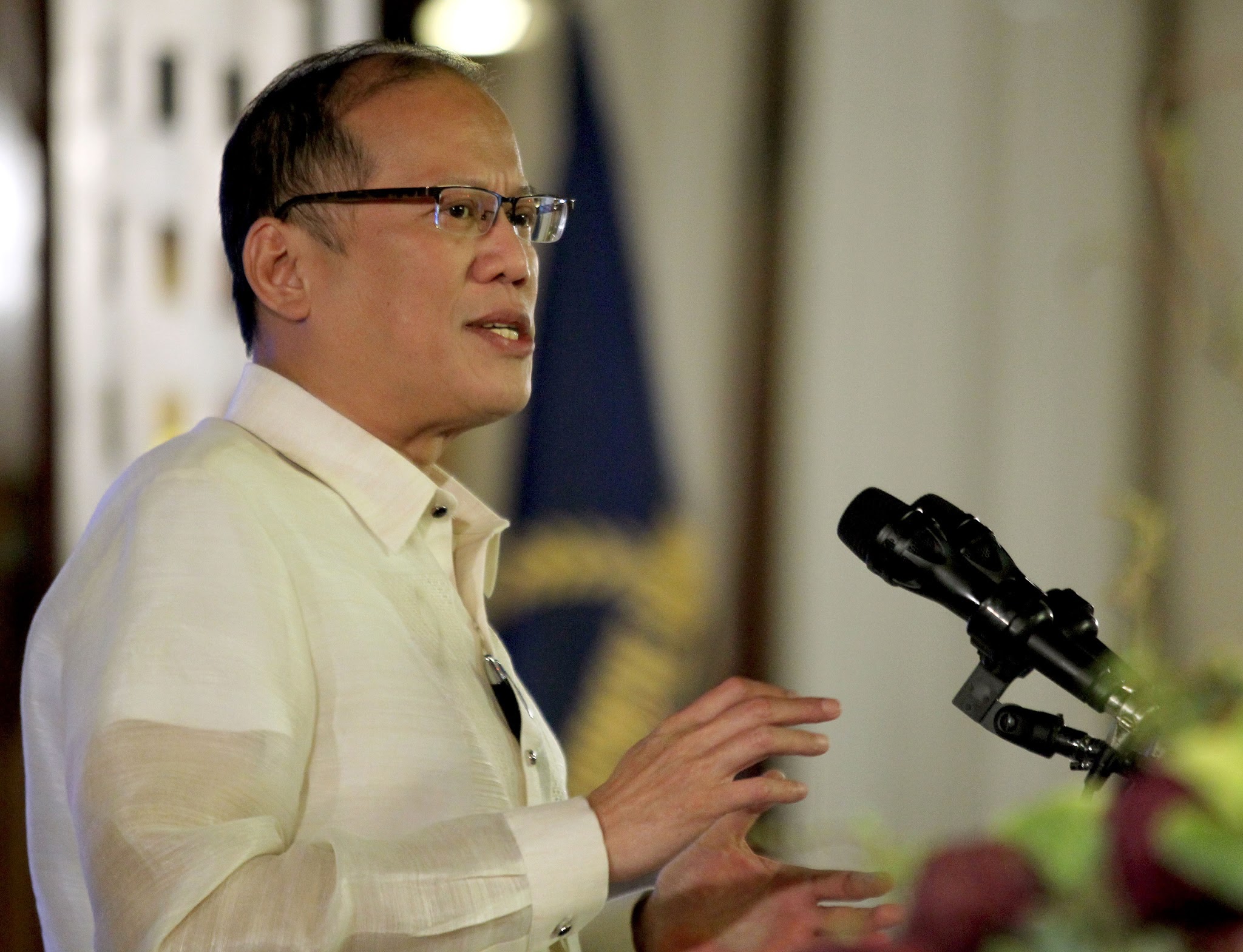Breaking
President Aquino confers Order of National Scientist on four academicians

President Benigno S. Aquino III delivers his message during the Asian Development Bank (ADB) Reception at the ADB Headquarters in ADB Avenue, Mandaluyong City on Wednesday night (March 12). (Photo by Gil Nartea / Robert Viñas / Malacañang Photo Bureau)
MANILA — President Benigno S. Aquino III on Tuesday conferred the Order of National Scientist on four academicians during a ceremony in Malacañang Palace.
The President gave recognition to Gavino C. Trono, Ph.D. (Marine Botany), Angel C. Alcala, Ph.D. (Biological Sciences), Roman C. Barba, Ph.D. (Horticulture), and Edgardo D. Gomez, Ph.D. (Marine Biology) for their outstanding contributions in their respective fields.
The four were endorsed to the President by the National Academy of Science and Technology, Philippines (NAST PHL).
Dr. Trono paved the way for the implementation of 45 research projects and the identification of 25 new species of marine benthic algae. He was first to report the occurrence of “ice-ice” disease among seaweeds, his field of focus.
Dr. Alcala is an advocate of marine “no-take zones”, which established marine reservation areas. He served as secretary of the Department of Environment and Natural Resources from 1992 to 1995 and as chairman of the Commission on Higher Education from 1995 to 1999.
Dr. Barba pioneered the induction of flowering and fruiting of mango, which made mangoes available all year round from being a seasonal fruit.
Dr. Gomez steered the world’s first national-scale assessment of damage to coral reefs, which brought widespread concern over the status of coral reefs worldwide. His effort led to the creation of the Global Coral Reed Monitoring Network and other institutions.
Assisting the President during the ceremony were Science and Technology Secretary Mario Montejo and NAST PHL President William Padolina.
The Order of National Scientist is the highest recognition given by the President of the Republic of the Philippines to Filipino men or women of science who have made significant contributions in one of the different fields of science and technology.
The award was created under Presidential Decree No. 1003-A on December 16, 1976. Since 1978, the Order of National Scientist has been given to 41 Filipinos, 16 of whom are still living.





















